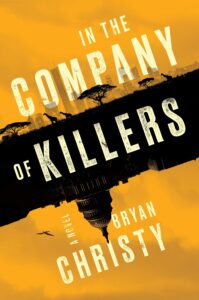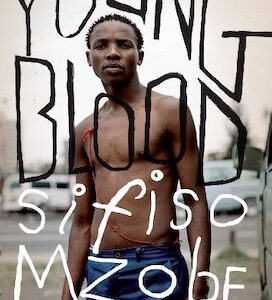We all know the power of fiction to do some good. It’s cover for forbidden facts. It can shine a spotlight on corruption. Ars gratia artis has it’s place, but not for me, not today. We’re living in a world of teenagers too young to drink or drive, sporting AR-15s. Of Putin and Xi assembling an all-star team of autocrats to take on the world. Fiction has a job to do. And one genre in particular is up to the task.
“Fiction in any form has always intended to be realistic,” Raymond Chandler begins his iconic essay on the crime writer’s craft, “The Simple Art of Murder.” The father of American noir goes on to rip apart the British cozy and most detective fiction as too improbable, overly rule-bound, just plain boring. The American crime story model, he argued back in 1950, was on its way to something. Gritty. Dark. Carried on the shoulders of a white male with no past, no personal life beyond the page. A lonely misogynist who likes his women shaken not stirred. A character who, in the form of Chandler’s Marlowe, was an alcoholic, anti-Semite, racist, and homophobic, given to violence, and absorber of same without fear of PTSD.
The ideal protagonist, Chandler writes, is a man of honor. “The story is his adventure in search of a hidden truth, and it would be no adventure if it did not happen to a man fit for adventure. He has a range of awareness that startles you, but it belongs to him by right, because it belongs to the world he lives in. If there were enough like him, I think the world would be a very safe place to live in, and yet not too dull to be worth living in.”
Seventy-one years on, men who aspired to Marlowe have long been in charge of things, and the world is far from a safe place to live, certainly if you’re outside Marlowe’s demographic. Marlowe was never realistic. Not in the way Chandler meant. Hardboiled men always have a backstory, an emotional life worth seeing. They do not live alone with good results. Wrong and right are not black and white. Women are not stage props. Nor are people of color. They’d be in charge as often as men if the system weren’t rigged against them.
For a decade I was the lead criminal investigator for National Geographic magazine. We operated a Special Investigations Unit to go after the world’s worst violators of our natural world. My first hurdle in doing this work came from the magazine’s editors. “We don’t do crime,” they objected when I first proposed investigating a Malaysian wildlife trafficking kingpin.
Of course, they did. They just didn’t realize it. Calling a species endangered drew a chalk line around it the same as if it were sprawled on a street curb. Exotic settings. Vulnerable victims. National Geographic had the perfect ingredients for crime stories. All they needed to do was to put faces on their stories’ villains. For about a decade that was my job. To identify wildlife criminals and tell their stories.
We called that first story The Kingpin to underscore what we were doing. After it ran, Malaysia changed its wildlife laws and the subject of the article, the so-called “Pablo Escobar of Wildlife Trafficking,” went to prison. Next, we used crime narratives to tell stories about elephant and rhino poaching. Activists, journalists, and politicians around the world picked up the stories and ran with them. As a result of our reporting, a pedophile monsignor was defrocked, ivory shops in Vatican City were raided, and eventually the Chinese government announced it was shutting down its domestic ivory market. This last change took a lot of organizations, government officials, and individuals to accomplish but crime narrative played an important part.
Existential issues today include domestic and international terrorism, the destabilization of democratic institutions, the rise of the surveillance state, poverty, racism, sexism, climate change, war. Issues old and new. When a theme is international, involves a lot of money, and depends on government corruption, espionage is usually in the air, and the protagonist who works well ferreting out the good and bad is a spy.
Among the best at converting critical international issues into criminal entertainment left us last year. John Le Carre took on big subjects—the Cold War, government corruption, big pharma, the military-industrial complex, Brexit—and he did it employing a handful of protagonists incapable of outrunning Philip Marlowe after a four martini lunch. George Smiley, to take the best of them, is questioning. Unsure. He moves forward in fits of self-doubt. He is a bureaucrat, a cuckhold. An anti-Bond, of course. He is also not overtly racist, misogynistic, or antisemitic. He’s anti-Marlowe. A listener where Marlowe is a quipster. A man who would end up bedridden after a blow Marlowe shakes off like a hangover. In Le Carre’s hands, vulnerable does not mean weak. Weak does not mean unworthy.
And with this poorly dressed, rather corpulent instrument as our guide, Le Carre explores the powerful and vulnerable in the world around us. He does it through beautifully constructed sentences and character observations, through well-researched locations and in the wake of personal interviews with people in the field doing what Le Carre is writing about. Decades after Le Carre quit the intelligence service, he was still researching and reporting his espionage books intelligently. In Chandler’s phrasing, his books were realistic. And because of that they have the bones to make a difference in the world even if that difference is merely to sensitize a reader when the news comes on.
Le Carre didn’t go far enough. He defined the modern espionage novel, crafted lingo real spies and Hollywood-types use to describe their work today—cousins, moles, honeypots, scalp hunters. He made it okay to spend time on character before the bombs went off. But he was British and so wasted some energy separating the phyllo of British class and bureaucracy. Still, he opened a door. He proved crime novels and espionage thrillers can do more than entertain. Others have come in through that door, and through the windows. Don Winslow’s masterful Cartel trilogy. Viet Thanh Nguyen’s The Sympathizer. Steph Cha’s Your House Will Pay. Crime novels with the spine, and the character, to take on the world.
***


















